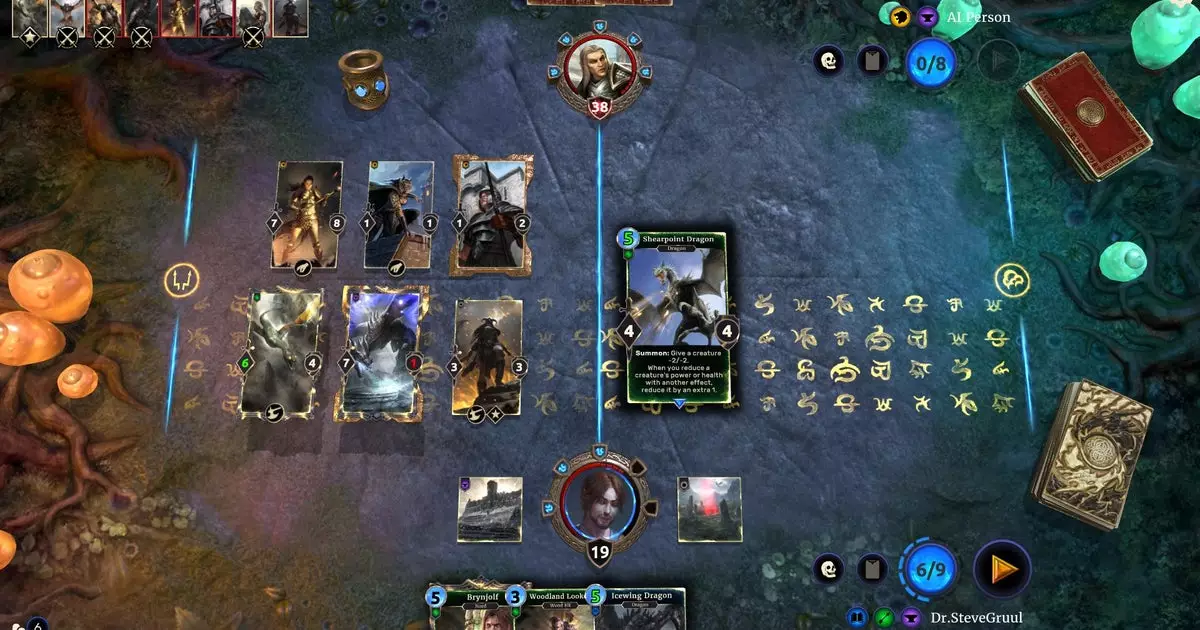In a disheartening announcement for fans of the franchise, Bethesda has declared that **The Elder Scrolls: Legends**, its free-to-play digital card game, will be removed from Steam and its online servers will be permanently shut down on January 30, 2025. Initially launched with high hopes, the game will join the ranks of other titles that have faded into obscurity. The closure marks a poignant moment not only for players but also for the broader gaming community, as it raises fundamental questions about the sustainability of live service games in today’s volatile market.
Drawing inspiration from the vast lore and mythology of the Elder Scrolls universe, Legends aimed to carve out its niche against established titans like Hearthstone. While critics like Brendy acknowledged its innovative rune system as a worthy improvement, the game’s potential was ultimately stymied by a lack of consistent content updates and community engagement. Notably, just a couple of years after its launch in 2017, the developers ceased further expansions, signaling a retreat from the ambitions that initially propelled it forward. As a result, Legends never attracted a robust player base, and its existence became more precarious as time went on.
This trajectory has sparked frustration among gamers. The emotional investment made in such titles becomes increasingly disheartening when the announcement of a shutdown looms, effectively rendering years of development moot. Players who once reveled in the gameplay and its intriguing mechanics find themselves grappling with a sense of loss, wondering why they dedicated their time to a project destined for the proverbial recycling bin.
The Systemic Struggles of Live Service Games
Legends’ demise is emblematic of a broader trend influencing free-to-play and live service titles. The industry frequently witnesses the rise and fall of games at a dizzying pace, with actually substantial player retention often proving elusive. This unpredictability leads to a pervading culture where games are rapidly phased out, leaving only a transient experience for enthusiasts. Unlike other mediums, such as film or traditional art forms, which often maintain their long-term value, digital games seem particularly vulnerable to this cycle of obsolescence.
Moreover, the absence of an offline mode for Legends amplifies the loss, as players will not even have a self-contained version of the game to revisit. This point emphasizes a broader issue: it fundamentally reshapes player relationships with digital entertainment, creating a rift where investment feels wasted and neglected efforts loom large in the consciousness of many who once supported these titles.
The impending closure of The Elder Scrolls: Legends serves as a harsh reminder of the fragility of modern gaming experiences. While technological innovation presents endless opportunities for storytelling and engagement, the transient nature of digital existence questions the long-term value of such investments. As we bid farewell to Legends, it’s crucial for both developers and players to contemplate the sustainability of their digital constructs. In an industry that evolves rapidly, the responsibility to foster enduring connections rests on the shoulders of those at the helm. If the gaming community wishes to break free from the limitations inherent in live service models, it’s essential to champion titles that prioritize permanence and player trust, lest we continue witnessing promising projects meeting untimely ends.

